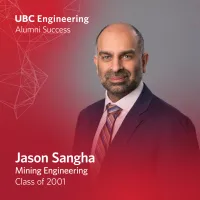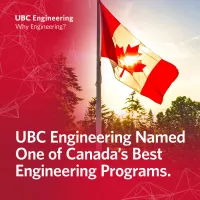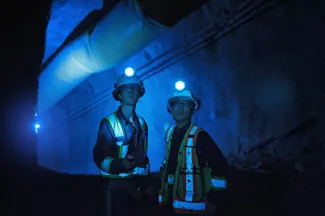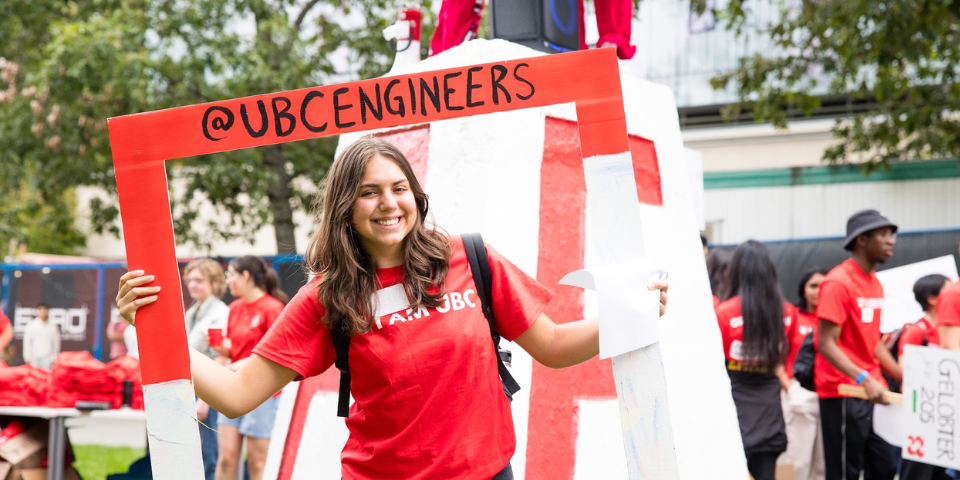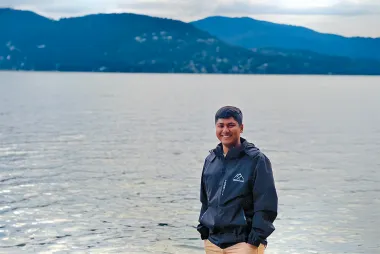"Mining engineers can be involved at the very beginning of a project to identify and quantify the location of mineral deposits. They are responsible for designing and planning new mines, and overseeing operations of existing mines."
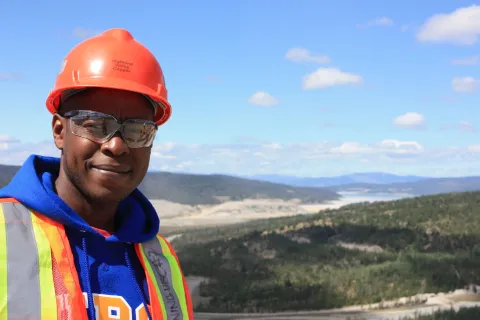
- Program:
Are you open to adventure? Do you like to travel? Do complex technical challenges fascinate you? Are you interested in using your knowledge and skills to make a tangible difference in our world?
If you’ve answered yes to any of these questions, mining engineering could be for you.
Mining engineers play a crucial role in creating a greener and more sustainable future for our communities and our planet.
The electrification of transportation systems and the shift to renewable energy simply cannot happen without critical minerals and metals, from cobalt and lithium to copper and rare earth elements.

Howard's Mining Engineering Journey
What is mining engineering?
Mining engineering is everything to do with the extraction of mineral resources from the earth. It encompasses removing the ore, processing it in a plant to produce a metal or concentrate, and managing and disposing of any waste materials. Doing this successfully requires a vast knowledge of physics and chemistry and basically every engineering discipline.
Mining engineers can be involved at the very beginning of a project to identify and quantify the location of mineral deposits. They are responsible for designing and planning new mines, and overseeing operations of existing mines.
They must design processes that are economically viable while maximizing efficiency, meeting the highest standards of safety and minimizing any potentially negative impacts. Mining engineers are also working at the edge of technical innovation, with many mine sites incorporating automation, advanced machinery and data analytics.

“Mining engineers need to have very strong technical skills that extend across multiple areas of engineering,” says Tonia Welch, Assistant Professor of Teaching in Mining Engineering.
“But mining engineering is about so much more than solving complex technical problems, which is why mining engineers also need to have strong communication and leadership skills.”
Mining Engineering at UBC Tonia Welch
What broader industry trends are shaping the demand for mining engineers?
The demand for metals and minerals is already high – and it’s growing quickly. Copper, for example, is essential to the electrification of many industries, yet the current annual global production of copper must basically double by 2035 to meet the demand for copper in clean energy and electrification applications. The story is even more acute for lithium and other metals.
This skyrocketing demand is driving incredible innovations in the industry as mining engineers seek ways to extract materials as efficiently and sustainably as possible.
As Ms. Welch notes, “long gone are the days of relatively straightforward and easily accessible deposits – many new deposits are at lower depths or in challenging environments where innovation is needed to access the ore safely, sustainably and economically.”
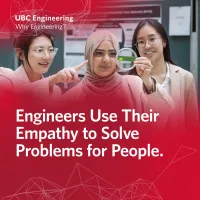
Interested?
Learn more about mining engineering:
- Watch a video to learn what it’s like to study mining engineering at UBC
- Explore our program
- Check out our scholarship opportunities
- Take a look at the final year capstone projects by filtering your search for “mining engineering”
- Read profiles of current mining engineering students and alumni by filtering your search for “mining engineering.”

